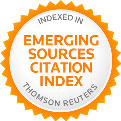¿Puede el ejercicio físico moderado durante el embarazo actuar como un factor de prevención de la Diabetes Gestacional? (Can moderate physical exercise during pregnancy act as a factor in preventing Gestational Diabetes?)
Resumen
El presente trabajo pretende conocer la eficacia de un programa de ejercicio físico moderado desarrollado durante todo el embarazo en la excesiva ganancia de peso materno y el desarrollo de la Diabetes Gestacional (DG). Se realizó un ensayo clínico, aleatorizado, no apareado, no enmascarado mediante una colaboración entre el Servicio de Ginecología y Obstetricia del Centro de Salud de Torrelodones y la Universidad Politécnica de Madrid. 55 gestantes sin contraindicaciones obstétricas fueron estudiadas, (edad=32,9±3,9 años), todas ellas caucásicas, 25 en el grupo de tratamiento y 30 en el de control. Se desarrolló un programa de ejercicio físico (seco/agua) durante todo el embarazo con una frecuencia de tres sesiones semanales. Nuestros resultados muestran que grupo de tratamiento presentó una menor ganancia de peso materno que en el de control (12.820±3.682 gr y 14.780±3.427 gr respectivamente, p=0,03), los valores en el Test de O´Sullivan (sobrecarga oral de glucosa) fueron inferiores en el grupo de tratamiento que en el de control 102,9±17,7 gr/dL vs 125,6±30,8 gr/dL respectivamente, p=0,002). No se diagnosticó ningún caso de DG en el grupo de tratamiento mientras que en el grupo de control se diagnosticaron 2 casos. El ejercicio físico desarrollado durante el embarazo reduce la ganancia de peso materno, los valores del Test de O’Sullivan y actúa aparentemente como un factor de prevención de la DG.
Palabras clave: ejercicio; embarazo; ganancia de peso materno; diabetes gestacional.
Abstract
The aim of the present study was to know the effectiveness of exercise of a moderate program developed during pregnancy in the excessive maternal weight gain and development of Gestational Diabetes (GD). We performed a clinical trial, randomized, unmatched, not masked by mean the collaboration between the Department of Gynecology and Obstetrics of Health Center of Torrelodones (Madrid) and the Polytechnic University of Madrid. 55 pregnant women without obstetric contraindications were studied, (age= 32,9±3,9 years), all of them caucasian, 25 in the treatment group and 30 in the control group. A physical exercise program was developed (land/water) three times per week during pregnancy. According to our resultats, treatment group showed a lower maternal weight gain than in the control group (12.820±3.682 g and 14.780 g ± 3.427 g respectively, p=0.03). The values in the O'Sullivan test are lower in the treatment group than in the control group (102,9±17,7 gr/dL vs 125,6±30,8 gr/dL respectively, p=0,002). Not diagnosed any cases of GD in the treatment group while the control group 2 cases were diagnosed. The exercise done during the pregnancy reduces maternal weight gain, values of O’Sullivan score and apparently acts as a preventive factor of the GD.
Key words: exercise; pregnancy; maternal weight gain; gestational diabetes.
doi:10.5232/ricyde2012.02701
---------------------------------------------------------------------
Referencias/references
ADA American Diabetes Association. (2004). Diagnosis and classification of diabetes mellitus. Diabetes Care, 27(suppl 1), S5-S10.
http://dx.doi.org/10.2337/diacare.27.2007.S5
ADA American Diabetes Association. (2004). Gestational diabetes mellitus. Diabetes Care, 27(suppl 1), S88-S90.
http://dx.doi.org/10.2337/diacare.27.2007.S88
Artal, R. (2003). Exercise: The alternative therapeutic intervention for gestational diabetes. Clinical Obstetrics and Gynecology, 46(2), 479-487.
http://dx.doi.org/10.1097/00003081-200306000-00026
PMid:12808397
Baeten, J.; Bukusi, E., & Lambe M. (2001). Pregnancy complications and outcomes among overweight and obese nulliparous women. Am J Public Health, (91), 436-440.
http://dx.doi.org/10.2105/AJPH.91.3.436
PMid:11236410 PMCid:1446581
Barakat, R., y Stirling J. (2008). Influencia del ejercicio físico aeróbico durante el embarazo en los niveles de hemoglobina y de hierro maternos. RICYDE. Rev. int. cienc. deporte, 4(11), 14-28. http://dx.doi.org/doi:10.5232/ricyde2008.01102
Barakat, R.; Alonso, G.; Rodriguez, M., y Rojo, J. (2005). El ejercicio físico durante el embarazo y su relación con los tiempos de las etapas del parto. Prog Obstet Ginecol, 48(2), 61-68.
http://dx.doi.org/10.1016/S0304-5013(05)72358-X
Barakat, R.; Lucia, A., & Ruiz, J. (2009). Resistance exercise training during pregnancy and newborn's birth size: A randomised controlled trial. Int J Obes, 33(9), 1048-1057.
http://dx.doi.org/10.1038/ijo.2009.150
PMid:19636320
Brankston, G.N.; Mitchell, B.F.; Ryan, E.A., & Okun, N.B. (2004). Resistance exercise decreases the need for insulina in overweight women with gestacional diabetes mellitas. American Journal of Obstetrics and Gynecology, 190(1), 188-93.
http://dx.doi.org/10.1016/S0002-9378(03)00951-7
Cavalcante, S.; Cecatti, J.; Pereira, R.; Baciuk, E.; Bernardo, A., & Silveira, C. (2009). Water aerobics II: Maternal body composition and perinatal outcomes after a program for low risk pregnant women. Reprod Health, 6, 1.
http://dx.doi.org/10.1186/1742-4755-6-1
PMid:19126239 PMCid:2628875
Clapp, J. (2009). Does exercise training during pregnancy affect gestational age? Clin J Sport Med, 19(3), 241-243.
http://dx.doi.org/10.1097/01.jsm.0000347356.41069.6e
Davies, G.A.; Maxwell, C.; McLeod, L.; Gagnon, R.; Basso, M.; Bos, H., et al. (2010). Societe of Obstetricians and Gynaecologists of Canada. Obesity in pregnancy. J Obstet Gynaecol Can., 32(2), 165-173.
PMid:20181319
De Ver Dye, T.; Fernandez, I.; Rains, A., & Fershteyn, Z. (2003). Recent studies in the epidemiologic assessment of physical activity, fetal growth, and preterm delivery: A narrative review. Clin Obstet Gynecol, 46(2), 415-422.
http://dx.doi.org/10.1097/00003081-200306000-00020
PMid:12808391
Domingues, M.; Barros, A., & Matijasevich, A. (2008). Leisure time physical activity during pregnancy and preterm birth in brazil. Int J Gynaecol Obstet, 103(1), 9-15.
http://dx.doi.org/10.1016/j.ijgo.2008.05.029
PMid:20695826
Duncombe, D.; Skouteris, H.; Wertheim, E.; Kelly, L.; Fraser, V., & Paxton, S. (2006). Vigorous exercise and birth outcomes in a sample of recreational exercisers: A prospective study across pregnancy. Aust N Z J Obstet Gynaecol, 46(4), 288-292.
http://dx.doi.org/10.1111/j.1479-828X.2006.00594.x
PMid:16866788
Dwarkanath, P.; Muthayya, S.; Vaz, M.; Thomas, T.; Mhaskar, A.; Mhaskar, R.; et al. (2007). The relationship between maternal physical activity during pregnancy and birth weight. Asia Pac J Clin Nutr., 16(4), 704-710.
PMid:18042532
Gavard, JA., & A.R. (2008). Effect of exercise on pregnancy outcome. Clin Obstet Gynecol, 51(2), 467-480.
http://dx.doi.org/10.1097/GRF.0b013e31816feb1d
PMid:18463475
Gouveia, R.; Martins, S.; Sandes, A.; Nascimento, C.; Figueira, J.; Valente, S.; et al. (2007). Pregnancy and physical exercise: Myths, evidence and recommendations. Acta Med Port, 20(3), 209-214.
PMid:17868529
Guelinckx, I.; Devlieger R.; Beckers, K., & Vansant, G. (2008). Maternal obesity: Pregnancy complications, gestational weight gain and nutrition. Obes Rev, 9(2), 140-150.
http://dx.doi.org/10.1111/j.1467-789X.2007.00464.x
PMid:18221480
HAPO Study Cooperative Research Group. (2008). Hyperglycemia and Adverse Pregnancy Outcomes. N Engl J Med, 358:1991-2002.
http://dx.doi.org/10.1056/NEJMoa0707943
PMid:18463375
HAPO Study Cooperative Research Group. (2010). Hyperglycaemia and Adverse Pregnancy Outcome (HAPO) Study: associations with maternal body mass index. BJOG, 117:575–84.
http://dx.doi.org/10.1111/j.1471-0528.2009.02486.x
Hatch, M.; Levin, B.; Shu, X., & Susser, M. (1998). Maternal leisure time exercise and time delivery. Am J Public Health, 88, 1528-1533.
http://dx.doi.org/10.2105/AJPH.88.10.1528
PMid:9772857 PMCid:1508461
Jewit, C. (2009). Pregnancy complicated by obesity: midwifery management. J Midwifery Womens Health, 54(6), 445-451. Review
http://dx.doi.org/10.1016/j.jmwh.2009.02.002
Jovanovic-Peterson, L.; Durak, E.P.; & Peterson, C.M. (1989). Randomized trial of diet versus diet plus cardiovascular conditioning on glucose levels in gestational diabetes. American Journal of Obstetrics and Gynecology, 161(2), 415-19
PMid:2764059
Karagiannis, T.; Bekiari, E.; Manolopoulos, K.; Paletas, K., & Tsapas, A. (2010). Gestational diabetes mellitus: why screen and how to diagnose. HIPPOKRATIA, 14(3), 151-4.
PMid:20981162 PMCid:2943351
Khashan, A.S., & Kenny, L.C. (2009). The effects of maternal body mass index on pregnancy outcome. Eur J Epidemiol, 24(11), 697-705.
http://dx.doi.org/10.1007/s10654-009-9375-2
PMid:19653107
Kiel, D.; Dodson, E.; Artal, R.; Boehmer, T., & Leet, T. (2007). Gestational weight gain and pregnancy outcomes in obese women: How much is enough? Obstet Gynecol, 110(4), 752-758.
http://dx.doi.org/10.1097/01.AOG.0000278819.17190.87
Kinnunen, T.; Pasanen, M.; Aittasalo, M.; Fogelholm, M.; Hilakivi-Clarke, L.; Weiderpass, E., & Luoto, R. (2007). Preventing excessive weight gain during pregnancy - a controlled trial in primary health care. Eur J Clin Nutr., 61(7), 884-891.
http://dx.doi.org/10.1038/sj.ejcn.1602602
PMid:17228348
Kuchenbecker, W.; Ruifrok, A.; Bolster, J.; Heineman, M., & Hoek, A. (2006). Subfertility in overweight women. Ned Tijdschr Geneeskd, 150(45), 2479-2483.
PMid:17137093
Laraia, B.; Messer, L.; Evenson, K., & Kaufman, J. (2007). Neighborhood factors associated with physical activity and adequacy of weight gain during pregnancy. J Urban Health, 84(6), 793-806.
http://dx.doi.org/10.1007/s11524-007-9217-z
PMid:17710552 PMCid:2232039
Lindholm, ES.; Norman, M.; Kilander, CP., & Altman, D. (2010). Weight control program for obese pregnant women. Acta Obstet Gynecol Scand., 89(6), 840-843.
http://dx.doi.org/10.3109/00016340903428370
PMid:19961277
Linne, Y. (2004). Effects of obesity on women's reproduction and complications during pregnancy. Obes Rev, 5(3), 137-144.
http://dx.doi.org/10.1111/j.1467-789X.2004.00147.x
PMid:15245382
Littman, A.; White, E.; Kristal, A.; Patterson, R., & Satia-About J.P.J. (2004). Assessment of a one-page questionnaire on long-term recreational physical activity. Epidemiology, 15(1), 105-113.
http://dx.doi.org/10.1097/01.ede.0000091604.32542.97
PMid:14712154
Luoto, RM.; Kinnunen, TI.; Aittasalo, M.; Ojala, K.; Mansikkamäki, K.; Toropainen, E.; Kolu, P., & Vasankari, T. (2010). Prevention of gestational diabetes: design of a cluster-randomized controlled trial and one-year follow-up. BMC Pregnancy Childbirth, 3(10), 39.
http://dx.doi.org/10.1186/1471-2393-10-39
PMid:20682023 PMCid:2923097
MacNeill, S.; Dodds, L.; Hamilton, D.C.; Armson, A., & VandenHof, M. (2001). Rates and risk factors for recurrence of gestational diabetes. Diabetes Care, 24(4), 659-662.
http://dx.doi.org/10.2337/diacare.24.4.659
PMid:11315827
Melzer, K.; Schutz, Y.; Boulvain, M., & Kayser, B. (2010). Physical activity and pregnancy: cardiovascular adaptations, recommendations and pregnancy outcomes. Sports Med., 40(6), 493-507.
http://dx.doi.org/10.2165/11532290-000000000-00000
PMid:20524714
Moses, R. (1996). The recurrence rate of gestational diabetes in subsequent pregnancies. Diabetes Care, 19(12), 1348-1350.
http://dx.doi.org/10.2337/diacare.19.12.1348
PMid:8941462
Mottola, MF. (2008). The role of exercise in the prevention and treatment of gestational diabetes mellitus. Curr Diab Rep. 8(4), 299-304.
http://dx.doi.org/10.1007/s11892-008-0053-7
PMid:18631443
Mottola, MF.; Giroux, I.; Gratton, R.; Hammond, JA.; Hanley, A.; Harris, S.; McManus, R.; Davenport, MH., & Sopper, MM. (2010). Nutrition and exercise prevent excess weight gain in overweight pregnant women. Med Sci Sports Exerc, 42(2), 265-272.
http://dx.doi.org/10.1249/MSS.0b013e3181b5419a
Mottola, M. (2009). Exercise prescription for overweight and obese women: Pregnancy and postpartum. Obstet Gynecol Clin North Am, 36(2), 301-316.
http://dx.doi.org/10.1016/j.ogc.2009.03.005
PMid:19501315
Mottola, M., y Campbell, M. (2003). Activity patterns during pregnancy. Can J Appl Physiol, 28(4), 642-653.
http://dx.doi.org/10.1139/h03-049
PMid:12904639
Olson, C. (2008). Achieving a healthy weight gain during pregnancy. Annu Rev Nutr, 28, 411-423.
http://dx.doi.org/10.1146/annurev.nutr.28.061807.155322
PMid:18422452
Ørskou, J.; Henriksen, T.; Kesmodel, U., & Secher, N. (2003). Maternal characteristics and lifestyle factors and the risk of delivering high birth weight infants. Obstet Gynecol, 102(1), 115-120.
http://dx.doi.org/10.1016/S0029-7844(03)00402-2
Owe, KM.; Nystad, W., & B.K. (2009). Association between regular exercise and excessive newborn birth weight. Obstet Gynecol, 114(4), 770-776.
http://dx.doi.org/10.1097/AOG.0b013e3181b6c105
Perkins, C.; Pivarnik, J.; Paneth, N., & Stein, A. (2007). Physical activity and fetal growth during pregnancy. Obstet Gynecol, 109(1), 81-87.
http://dx.doi.org/10.1097/01.AOG.0000249605.11458.ac
Siega-Riz, A., Evenson, K., & Dole, N. (2004). Pregnancy-related weight gain--a link to obesity? Nutr Rev, 62(7 Pt 2), 105-111.
http://dx.doi.org/10.1301/nr.2004.jul.S105-S111
Simpson, J. (1993). Are physical activity and employment related to preterm birth and low birth weight? Am J Obstet Gynecol, 168, 1231-1238.
PMid:8475970
Shaikh, H.; Robinson, S., & Teoh, TG. (2010). Management of maternal obesity prior to and during pregnancy. Semin Fetal Neonatal Med., 15(2), 77-82.
http://dx.doi.org/10.1016/j.siny.2009.10.003
PMid:19945927
Shirazian, T., & Raghavan, S. (2009). Obesity and pregnancy: implications and management strategies for providers. Mt Sinai J Med., 76(6), 539-545.
http://dx.doi.org/10.1002/msj.20148
PMid:20014418
Sternfeld, B. (1997). Physical activity and pregnancy outcome (rev and rec). Sport Med, 23(1), 33-47.
http://dx.doi.org/10.2165/00007256-199723010-00004
PMid:9017858
Voldner, N.; Frøslie, K.; Haakstad, L.; Bø, K., & Henriksen, T. (2009). Birth complications, overweight, and physical inactivity. Acta Obstet Gynecol Scand, 88(5), 550-555.
http://dx.doi.org/10.1080/00016340902818162
PMid:19277916
Wolfe, L.; Brenner, I., & Mottola, M. (1994). Maternal exercise, fetal well- being and pregnancy outcome. Exerc Sport Sci Rev, 22, 145-194.
http://dx.doi.org/10.1249/00003677-199401000-00008
PMid:7925542
---------------------------------------------------------------------
Palabras clave/key words
Texto completo/Full Text:
PDF------------------------ 0 -------------------------
RICYDE. Revista Internacional de Ciencias del Deporte
![]()

Publisher: Ramón Cantó Alcaraz
ISSN:1885-3137 - Periodicidad Trimestral / Quarterly

